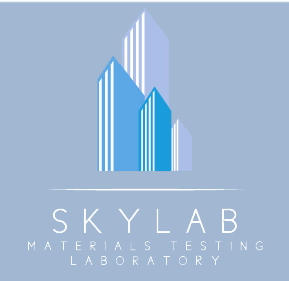Concrete testing tests the strength and composition of concrete and its components to ensure the concrete meets the standards and requirements outlined in the NYC Building Code. In our region, all concrete testing must be performed by a lab licensed by the New York City Department of Buildings.
In this resource article, we will examine some of the concrete tests professionals perform on fresh and existing concrete, as well as why concrete testing is key to the success of your project.
What Are the Tests Performed on Concrete?
Concrete testing can be classified into two main categories: laboratory testing and field testing. Concrete can be field-tested during concrete installation or during investigative evaluations of the concrete after installation to determine its strength properties. However, compressive strength and flexural strength are best measured in a laboratory.
Field Testing
Field tests commonly used in the industry to examine the quality of concrete include:
- Batch Plant
- Temperature
- Slump
- Density
- Air-Normal/Lightweight
- Microwave Water Content
- Self Consolidating Concrete
Laboratory Testing
When doing forensic testing of existing concrete, the best way to determine strength and composition is through:
- Compressive Strength Testing
- Standard Deviation Testing
Variation Testing
Some other conducive testing methods include variation testing. At Skylab, we also do:
- Modulus of Elasticity
- Chloride lon Penetration
- Content
- Shotcrete Panel
Why Is It Important to Test Concrete?
Concrete testing is crucial to ensuring that the structures we build are strong and resilient. For example, as a result of the batching process, fresh concrete has some air voids. Testing and mitigating quality concerns ensure resistance to freeze-thaw cycles through the development of a proper system of air bubbles. These void spaces allow water and solids to expand and contract without damaging the concrete.
As mentioned earlier in our article, concrete placed at any building under construction in New York City is required to be tested to ensure it meets the project’s structural design requirements and this testing must be performed by a licensed Concrete Testing Laboratory. But what about places outside the city? Even if concrete testing is not a requirement in your municipality, it is still key to the protection and success of your investment for years to come. Trust in your structure’s quality can help you land more potential occupants and investors, and save you from costly repairs down the road.
Our materials testing laboratory coupled with our class 1 special inspection agency makes us an all-inclusive single point of contact for all your inspection and testing needs for your construction project.
Skylab is a unique, full-service material testing laboratory serving the five boroughs of NYC, Long Island, Staten Island, and New Jersey. We have a robust portfolio of experience in materials testing across the commercial office, high-rise residential, new building, retail, hospitality, institutional, and critical systems sectors. For expert service you can depend on contact our team to learn how we can help.


